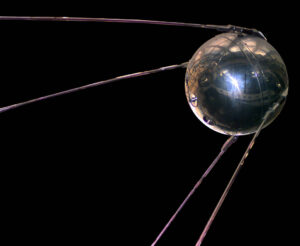
Sixty-four years ago the Soviet Union launched Sputnik, the first artificial satellite. This was not welcome news in the United States as it confirmed that the Soviets were well ahead of us in the development of rocket technology. In fact, this launch greatly accelerated the “space race” that eventually culminated in the U.S. moon landing in July 1969.
The ancillary benefits of that decade of rapid development are still with us today. Much of the remarkable advances in computer technology were made during the space race, as were many component technologies that currently power popular devices such as cell phones and digital music devices.
Quite separate from those advances, the advantage of having satellites in space for the purposes of improving understanding of our atmosphere, monitoring its climate and predicting its weather cannot be overstated. The applications of satellite technology to weather prediction have blosso0med in the last 40 or so years.
Since about 70% of the earth’s surface is covered by oceans, observations of the atmosphere over such areas by conventional observing systems is nearly impossible. Satellites provide an enormous amount of observational data from these regions that is fed into the ceaseless forecast operations around the world.
Satellite observations of tropical weather systems has been extremely important in the rapid increase in hurricane forecast accuracy that as occurred over the past few decades.
Finally, a good number of the scientists currently working on atmospheric problems were attracted to science generally as a result of the Apollo program in the 1960s. Thus, the anniversary today is a particularly compelling example of the power of answering a national call to action in the face of looming threat. Perhaps we can muster the same fortitude as we stare down the climate problem.
Steve Ackerman and Jonathan Martin, professors in the UW-Madison department of atmospheric and oceanic sciences, are guests on WHA radio (970 AM) at 11:45 a.m. the last Monday of each month. Send them your questions at stevea@ssec.wisc.edu or jemarti1@wisc.edu.

